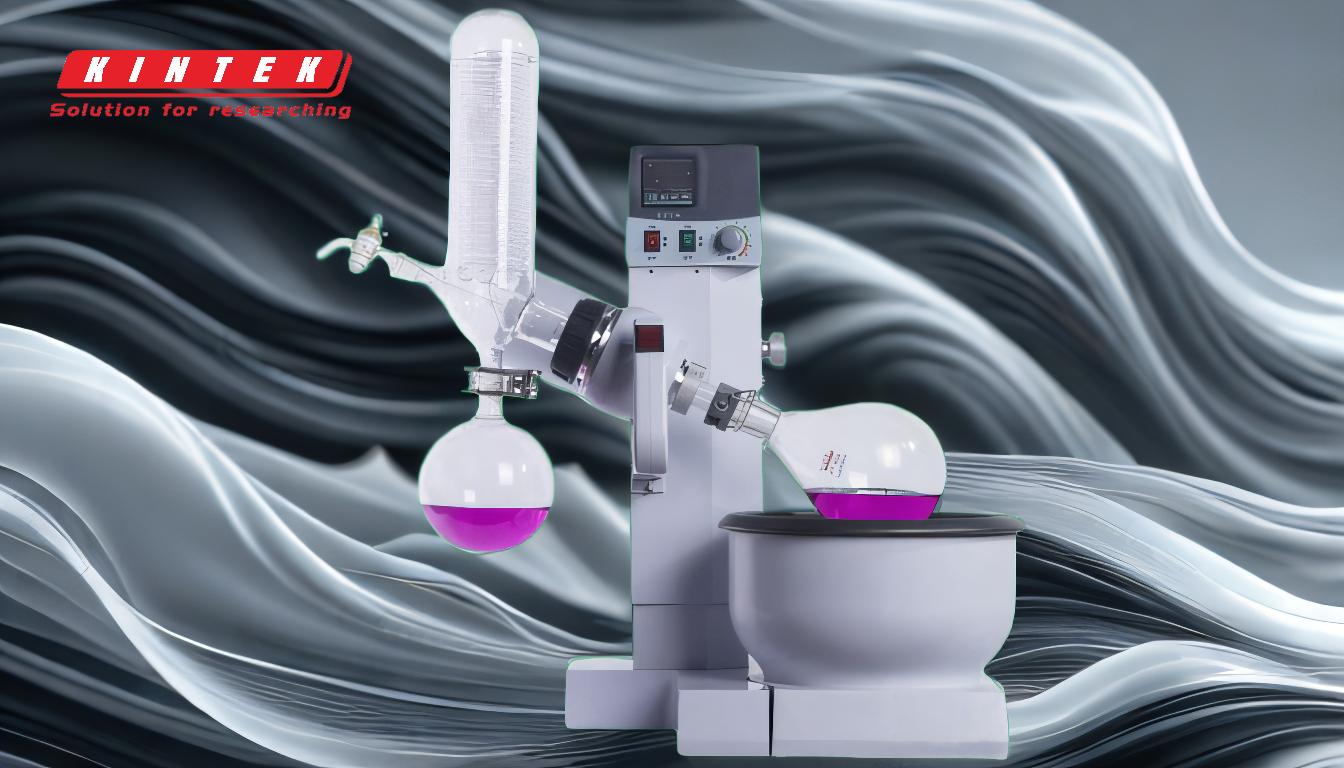The vacuum pump in a rotary evaporator plays a critical role in the evaporation process by creating a reduced pressure environment within the system. This reduction in pressure lowers the boiling point of the liquid solvent, allowing it to evaporate at a lower temperature. This not only speeds up the evaporation process but also minimizes the risk of thermal degradation, making it ideal for handling heat-sensitive materials. Additionally, the vacuum pump ensures a continuous feed system and maintains the purity of the extracted solvents by removing air and other gases from the system. Overall, the vacuum pump enhances the efficiency, safety, and precision of the rotary evaporation process.
Key Points Explained:

-
Creation of a Reduced Pressure Environment:
- The vacuum pump removes air and gases from the sealed system, creating a partial vacuum. This reduction in pressure is essential for lowering the boiling point of the solvent, enabling it to evaporate at a lower temperature. This is particularly beneficial for heat-sensitive compounds that could degrade at higher temperatures.
-
Lowering the Boiling Point:
- By reducing the pressure, the vacuum pump allows the solvent to boil at a temperature significantly lower than its standard boiling point. This ensures that the evaporation process is gentle and efficient, reducing the risk of damaging temperature-sensitive materials.
-
Accelerating the Evaporation Process:
- The lowered boiling point facilitates faster evaporation of the solvent. This not only speeds up the overall process but also reduces the energy input required, making the system more energy-efficient.
-
Minimizing Thermal Degradation:
- Operating at lower temperatures reduces the risk of thermal degradation of sensitive compounds. This is crucial in applications involving delicate materials such as pharmaceuticals, essential oils, and other heat-sensitive substances.
-
Enhancing Safety:
- By enabling the process to be carried out at lower temperatures, the vacuum pump reduces the risk of overheating and potential hazards associated with high-temperature operations. This improves the overall safety of the rotary evaporation process.
-
Maintaining Solvent Purity:
- The vacuum pump helps in maintaining the purity of the extracted solvents by removing air and other gases from the system. This ensures that the solvents are not contaminated during the evaporation process.
-
Providing Process Control:
- The vacuum pump offers a quickly adjustable parameter to influence the speed of the evaporation process. This allows for precise control over the evaporation rate, making it easier to optimize the process for different solvents and materials.
-
Efficient Condensation:
- In some setups, the vacuum pump is applied to the condenser to increase air pressure, which slows down the movement of the gas. This aids in the efficient trapping and re-liquefaction of the vaporized gas, ensuring that the solvent is effectively recovered.
In summary, the vacuum pump is an indispensable component of a rotary evaporator, providing the necessary conditions for efficient, safe, and precise evaporation of solvents. Its ability to lower the boiling point, accelerate evaporation, and protect heat-sensitive materials makes it a critical tool in various scientific and industrial applications.
Summary Table:
| Key Role | Benefits |
|---|---|
| Reduced Pressure Environment | Lowers boiling point, enabling evaporation at lower temperatures. |
| Lower Boiling Point | Protects heat-sensitive materials from thermal degradation. |
| Faster Evaporation | Speeds up the process and reduces energy consumption. |
| Enhanced Safety | Minimizes overheating risks and ensures safer operations. |
| Solvent Purity | Removes air and gases, maintaining solvent purity during evaporation. |
| Process Control | Adjustable vacuum levels for precise control over evaporation rates. |
| Efficient Condensation | Improves solvent recovery by aiding vapor re-liquefaction. |
Optimize your rotary evaporation process with the right vacuum pump—contact us today for expert guidance!





















